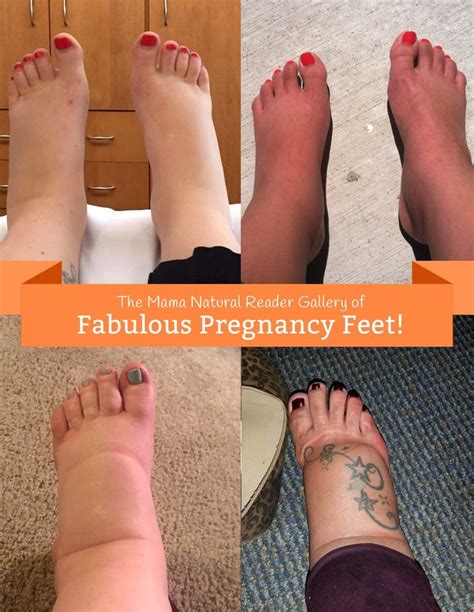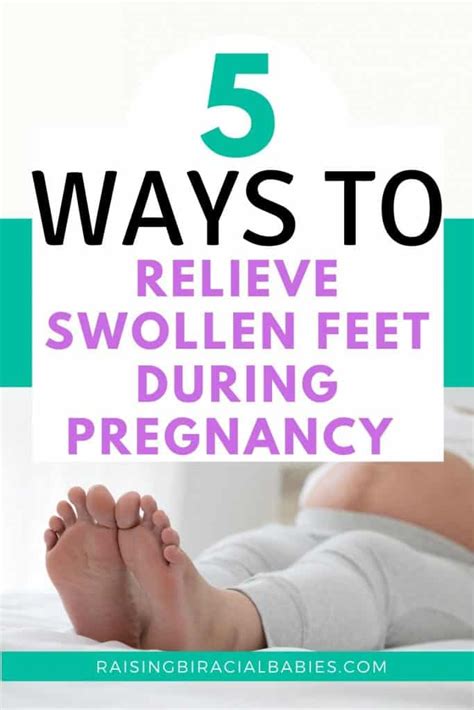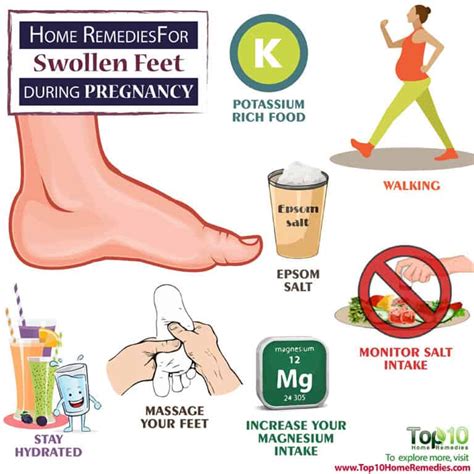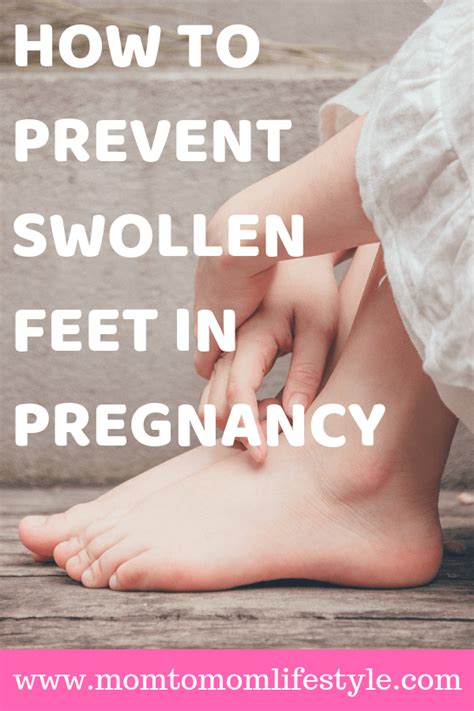Intro
Find relief from swollen feet during pregnancy with natural remedies and self-care tips, alleviating discomfort and pain through foot elevation, compression, and hydration, for a healthier pregnancy experience.
Pregnancy is a unique and exciting time in a woman's life, filled with numerous physical and emotional changes. One of the common complaints during pregnancy is swollen feet, which can be uncomfortable and painful. Swollen feet during pregnancy are a normal occurrence, affecting up to 80% of expectant mothers. This condition is usually caused by the increased fluid and blood volume in the body, combined with the pressure from the growing uterus on the veins in the legs and feet. As the pregnancy progresses, the swelling can worsen, making it difficult to walk, stand, or even wear shoes.
The symptoms of swollen feet during pregnancy can vary from mild to severe. Some women may experience a slight puffiness in their feet and ankles, while others may have more pronounced swelling that extends up to the knees. In addition to the physical discomfort, swollen feet can also cause emotional distress, making it challenging for women to enjoy their pregnancy journey. Fortunately, there are several relief measures and remedies that can help alleviate swollen feet during pregnancy. From simple lifestyle changes to medical interventions, there are various options available to provide comfort and reduce swelling.
Swollen feet during pregnancy can be a significant concern for expectant mothers, affecting their daily activities, mobility, and overall well-being. It is essential to understand the causes, symptoms, and treatment options available to manage swollen feet during pregnancy. By taking proactive steps and seeking medical advice when necessary, women can reduce their discomfort and enjoy a healthier, more comfortable pregnancy journey.
Causes of Swollen Feet During Pregnancy

Physiological Changes
During pregnancy, the body undergoes significant physiological changes to support the growing fetus. One of these changes is the increase in blood volume, which can lead to swelling in the feet and ankles. The expanded blood volume puts additional pressure on the veins, causing fluid to leak into the surrounding tissues and resulting in swelling. Furthermore, the growing uterus can compress the veins in the legs and feet, hindering blood flow and contributing to swelling.Hormonal Fluctuations
Hormonal changes during pregnancy also play a role in swollen feet. The hormone progesterone, which increases significantly during pregnancy, can cause blood vessels to relax and dilate, leading to increased fluid leakage into the tissues. Additionally, the hormone relaxin can cause the ligaments and tendons to relax, affecting the feet and ankles and leading to swelling.Relief Measures for Swollen Feet During Pregnancy

Lifestyle Changes
Making lifestyle changes can help reduce swelling and alleviate discomfort. Some of the most effective lifestyle changes include: * Elevating the feet above the level of the heart to reduce swelling * Staying hydrated to help flush out excess fluids * Exercising regularly to improve circulation and reduce fluid buildup * Avoiding standing or walking for long periods * Wearing comfortable shoes that provide adequate support and cushioningMedical Interventions
In some cases, medical interventions may be necessary to alleviate swollen feet during pregnancy. Some of the most common medical interventions include: * Compression stockings to improve circulation and reduce swelling * Elevation devices to help elevate the feet and legs * Pain relief medications to alleviate discomfort and pain * Regular check-ups with a healthcare provider to monitor swelling and overall healthHome Remedies for Swollen Feet During Pregnancy

Natural Remedies
Natural remedies can also be effective in alleviating swollen feet during pregnancy. Some of the most effective natural remedies include: * Consuming foods rich in potassium, such as bananas and leafy greens, to help reduce swelling * Drinking herbal teas, such as dandelion or peppermint, to improve circulation and reduce inflammation * Using natural diuretics, such as cranberry juice or apple cider vinegar, to help reduce fluid buildupPreventing Swollen Feet During Pregnancy

Regular Check-Ups
Regular check-ups with a healthcare provider are essential in preventing and managing swollen feet during pregnancy. A healthcare provider can: * Monitor swelling and overall health * Provide guidance on lifestyle changes and medical interventions * Identify any underlying conditions that may be contributing to swellingConclusion and Final Thoughts

What causes swollen feet during pregnancy?
+Swollen feet during pregnancy are caused by a combination of physiological, hormonal, and mechanical changes, including increased fluid and blood volume, hormonal fluctuations, and pressure from the growing uterus on the veins in the legs and feet.
How can I alleviate swollen feet during pregnancy?
+To alleviate swollen feet during pregnancy, try elevating your feet, staying hydrated, exercising regularly, and wearing comfortable shoes. You can also try home remedies such as soaking your feet in cold water, using essential oils, and massaging your feet and legs.
Can I prevent swollen feet during pregnancy?
+While swollen feet during pregnancy are common, there are several steps you can take to prevent or reduce swelling. Maintain a healthy weight, avoid excessive heat, wear comfortable shoes, and elevate your feet regularly to reduce swelling and alleviate discomfort.
We hope this article has provided you with valuable information and insights on swollen feet during pregnancy. If you have any further questions or concerns, please don't hesitate to comment below. Share this article with your friends and family to help them understand the causes, symptoms, and treatment options available for swollen feet during pregnancy. Remember to take care of your feet and overall health during this special time, and don't hesitate to seek medical advice if you experience persistent or severe swelling.
